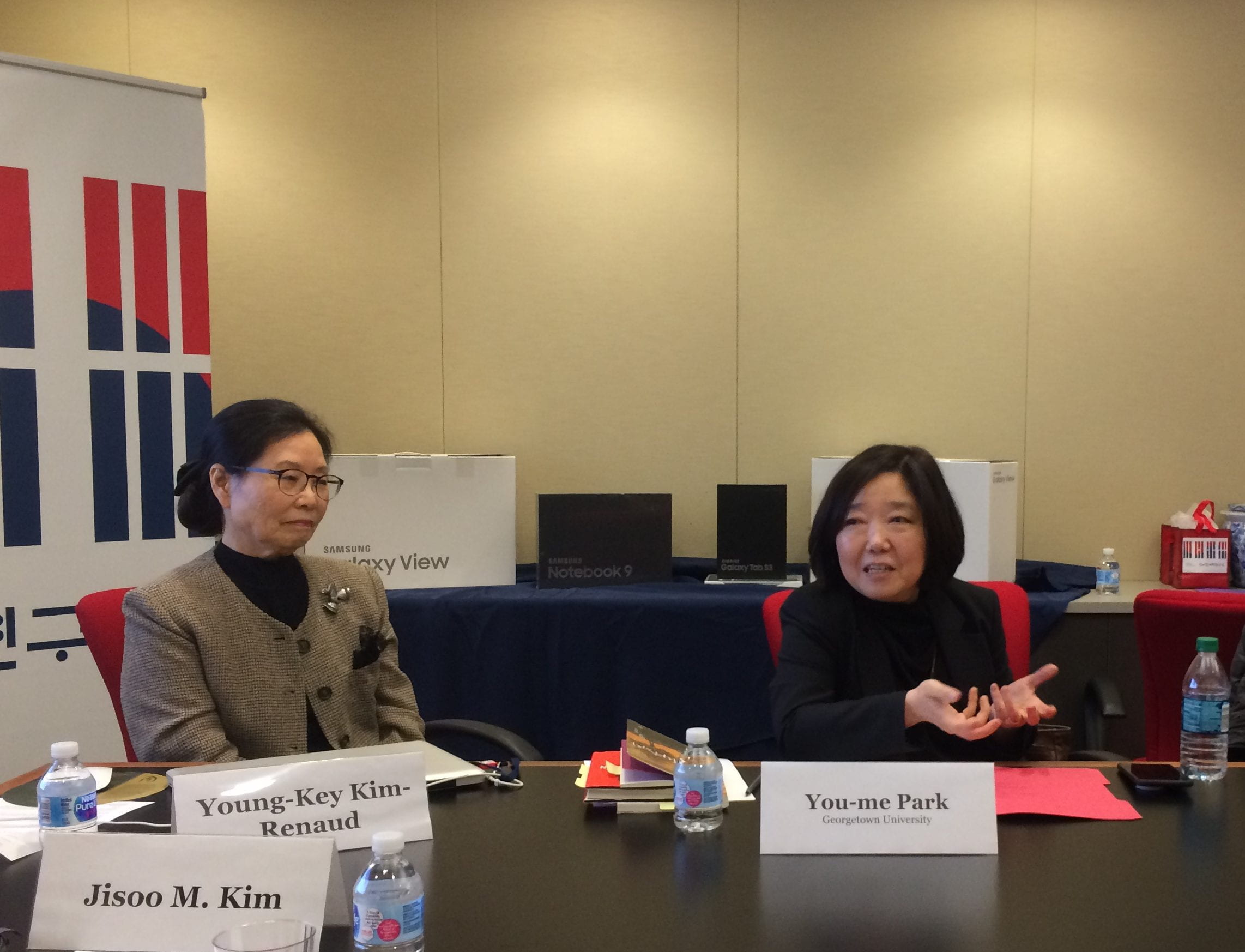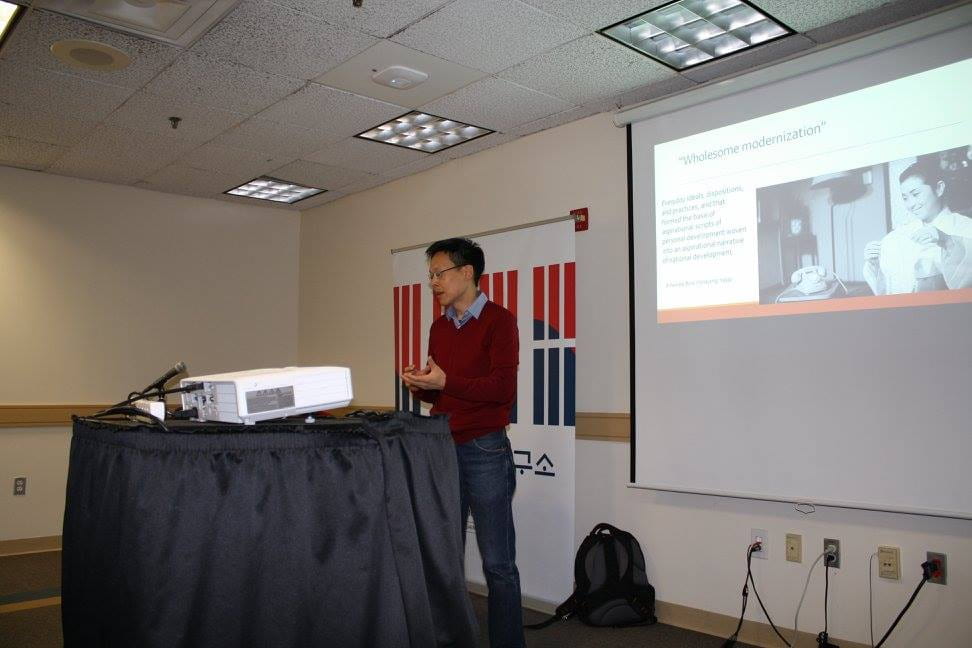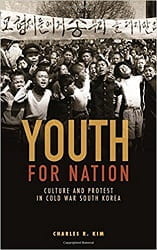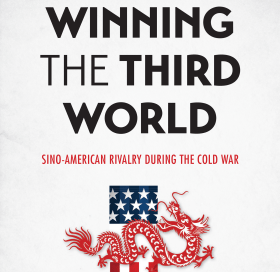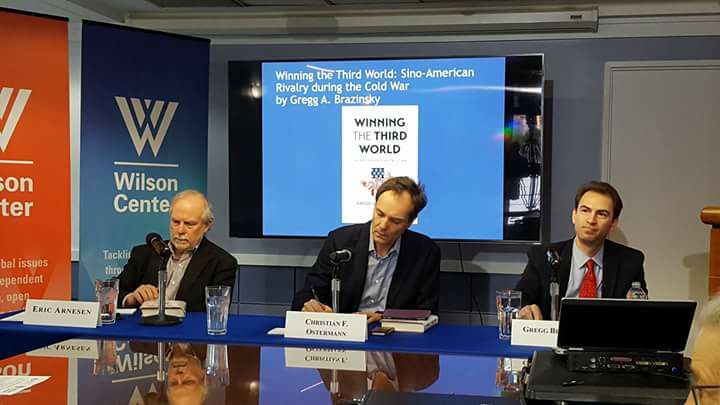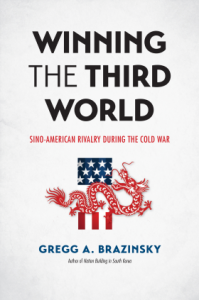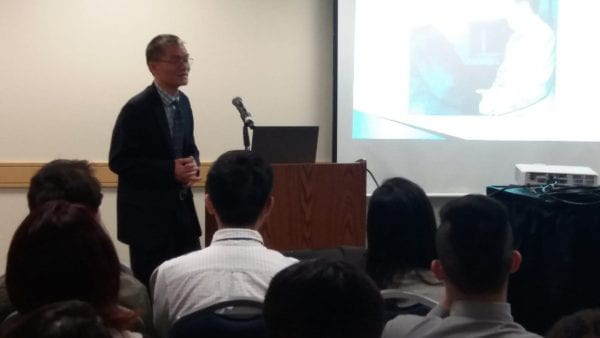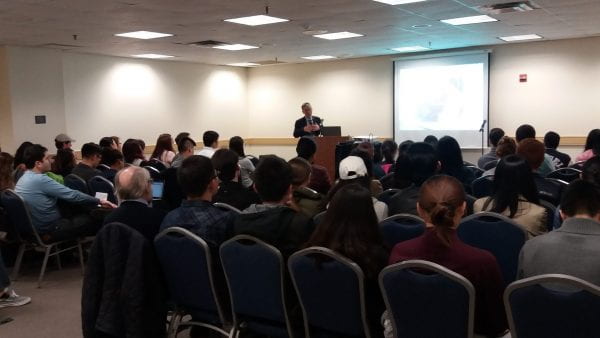On November 10, the Institute for Korean Studies hosted its first award ceremony for the 2017 Korean Literature Essay Contest. The winning essayists, prestigious judges, and faculty were invited.
Director Jisoo M. Kim started the event with a warm welcome and opening remarks. She congratulated the finalists for a wonderful job on their essays and expressed gratitude for the reviewers You-me Kim and James Mattson. Afterwards, Prof. Young-key Kim-Renaud gave a brief presentation on the plot and translation of Han Kang’s Man Booker International Prize winning novel The Vegetarian. Her presentation focused on the growing global awareness of Korean literature, noting that The Vegetarian played a pivotal role in further extending that scope of recognition. Prof. Kim-Renaud described the major themes of the narrative as a violent struggle against violence. Furthermore, on the topic of Deborah Smith’s English translation of the book, Prof. Kim-Renaud praised Smith’s ability to convey the tone of Kim’s novel but also pointed out the mistakes in her translation work.
Prof. You-me Park, a professor at Georgetown University, offered her insights as to how she had decided on her top essays. Her remarks opened with a famous quote by Leo Tolstoy: “All happy families are alike; each unhappy family is unhappy in its own way.” Firstly, Prof. Park noted that many of the best essays were alike in the sense that they all shared an intellectual curiosity as well as a sense of humility and respect for the work. Overall, the best essays recognized the author’s despair at the violence, a difficult feat for the essayists considering how hard it is for students to grasp the difference in culture in the novel. Prof. Park concluded with her thoughts on the Western audience’s reception of the novel and the ways in which many Western readers failed to notice the political message in the narrative. In particular, she found that the co-optation of Western audiences of Korean novels as narratives of racialized sexual violence to be highly problematic. She urged writers to take careful consideration of the cultural differences when analyzing Korean literature.
The award ceremony took place at the end with Director Jisoo Kim announcing the winners, and Prof. Kim-Renaud presenting the award certificates and prizes. The third place winners Gloria Han and Ho Young Choe each received a Samsung Galaxy View; second place winner Nancy Chung received a Samsung Tab S3; and first place winner Eric Kenney received a Samsung Notebook 9.
The GWIKS Korean Literature Essay Contest is an annual event that encourages students to engage in Korean literature. The 2017 GWIKS Korean Literature Essay Contest was sponsored by the Literature Translation Institute of Korea.
